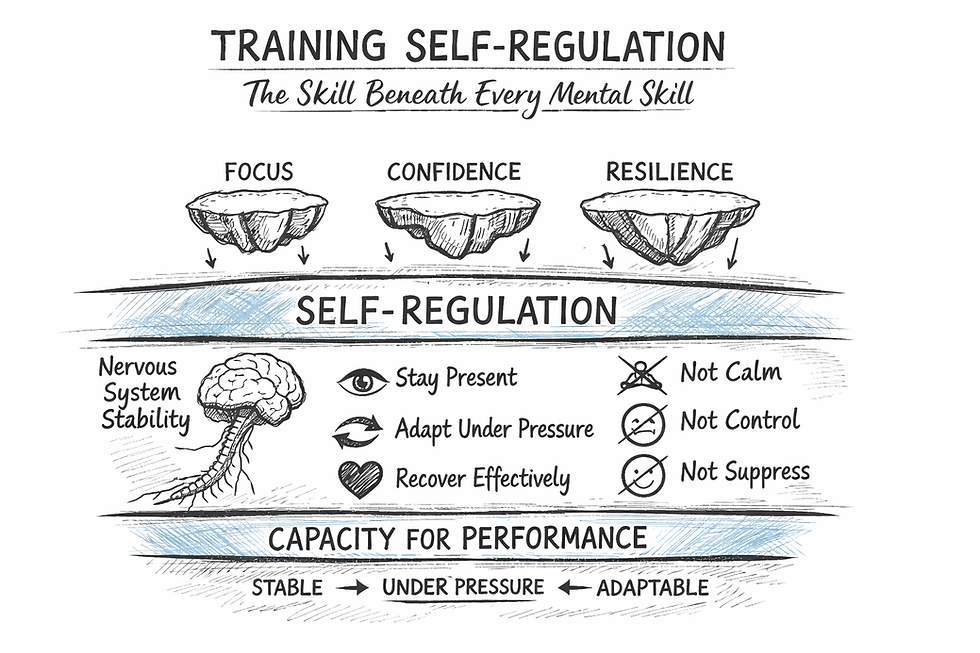Unlocking Peak Performance: The Power of Effort in Athletics
- Kate Allgood
- Aug 3, 2023
- 3 min read
Updated: Dec 18, 2023
As an athlete, you constantly strive for excellence and look for ways to improve your performance on the field, court, or track. While talent and skill are undoubtedly essential, one aspect that often goes unnoticed is the role of effort in achieving athletic goals. In this blog post, we will explore the profound connection between effort and performance, and how embracing the power of effort can propel you to reach new heights in your athletic endeavors.
Effort as the Key to Mastery:
When it comes to achieving mastery in any sport, effort is the linchpin that holds the entire process together. Every great athlete, from Michael Jordan to Serena Williams, has attributed their success to their relentless work ethic and dedication to improving their skills day in and day out. Remember, champions are not born overnight; they are forged through persistent effort and an unwavering commitment to their craft.

Embracing the Journey:
Often, athletes become too fixated on the end result, be it winning the championship, breaking a record, or reaching the pinnacle of their sport. While these goals are undoubtedly important, it is crucial to focus on the journey rather than the destination. By embracing the process of improvement, you can find joy and fulfillment in the daily grind, leading to enhanced performance on the field. Cultivating a growth mindset and viewing challenges as opportunities to learn and grow can fuel your passion for the sport and drive you towards excellence.
Pushing Past Comfort Zones:
Effort requires you to step outside of your comfort zones. Whether it's pushing through grueling training sessions, attempting new techniques, or competing against tougher opponents, true progress comes from pushing your limits. As you push yourself beyond what you previously thought possible, you discover new reservoirs of strength and resilience that ultimately elevate your performance.
Overcoming Setbacks:
Effort doesn't always guarantee immediate success. There will be setbacks and obstacles along the way. Injuries, losses, and disappointments are inevitable in the world of sports. However, it is during these challenging moments that your true character as an athlete is revealed. Instead of giving up, you must channel your efforts into overcoming adversity, learning from your mistakes, and emerging stronger than before. The ability to bounce back from setbacks is a hallmark of great athletes.
Finding Balance:
While effort is critical for athletic success, it is equally important to strike a balance. Overtraining and neglecting rest and recovery can lead to burnout and injuries. Listen to your body and mind, and recognize when it's time to take a step back and rejuvenate. A well-rested and mentally refreshed athlete performs at their peak level when it matters the most.
Effort is the driving force behind athletic excellence. By embracing the power of effort, you unlock your true potential and create a path to greatness in your chosen sport. Remember, success is not solely measured by victories but also by the dedication, passion, and hard work you put into honing your skills. For help with focusing on the controllable element of effort or any other aspects of building your mental game contact us to find out how our programs can help you unveil your potential.
To your success,
Kate
Envision • Execute • Elevate
About: Kate Allgood is trained in the field of applied sport psychology. She holds two Masters degrees in psychology where she graduated with distinction. She has spent the past 14 years working one on one with high school, college, Olympic, and professional athletes to help them with their mindset, mental performance and mental skills training. Kate has also been a consultant for professional teams, including the Anaheim Ducks primary minor league affiliate the San Diego Gulls, to help the team and players develop their mental game. It is important to note that while Kate has graduate school training in applied sport psychology and general psychology, she does not diagnose or treat clinical disorders, and is not a licensed psychologist.
**The information provided is not to dispense medical advice or prescribe the use of any technique, either directly or indirectly, as a form of treatment for physical, emotional, or medical problems, without the advice of a physician. The information provided is only to offer information of a general nature to help you in your quest for high performance. If you know or suspect you have a health problem, it is recommended you seek your physician's advice.



Comments